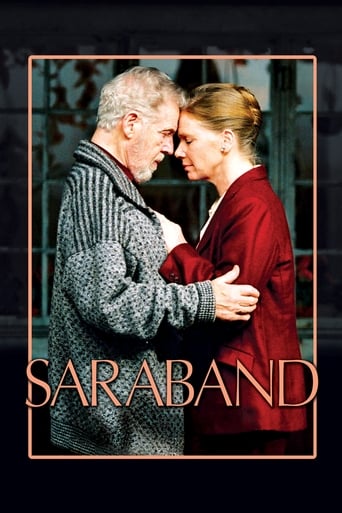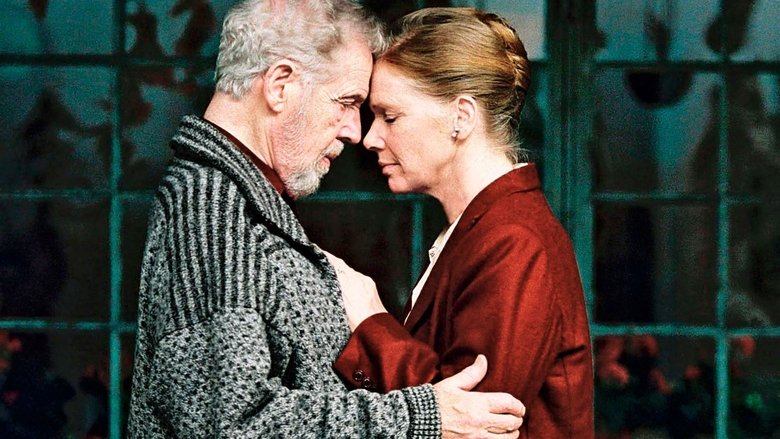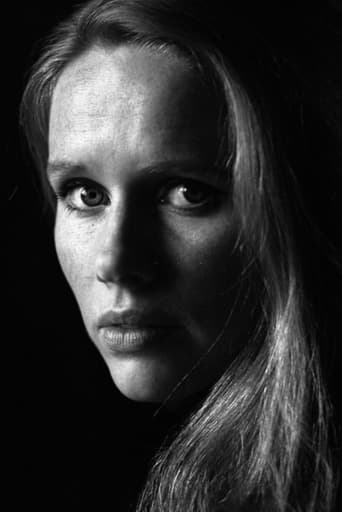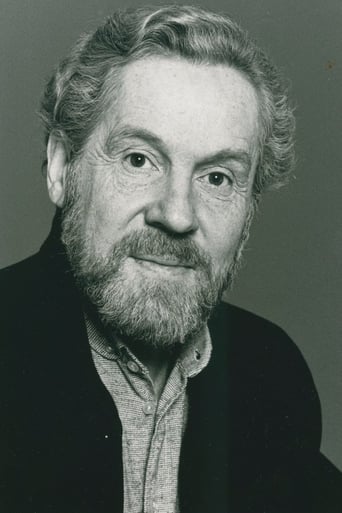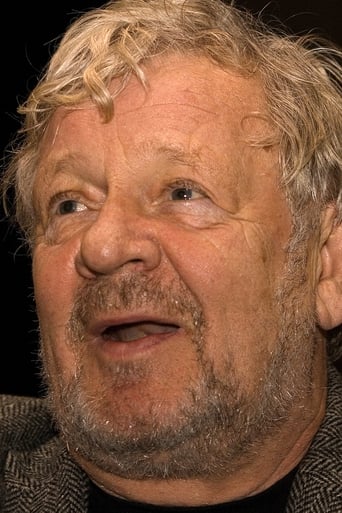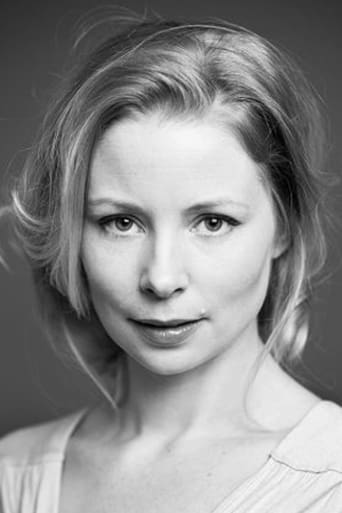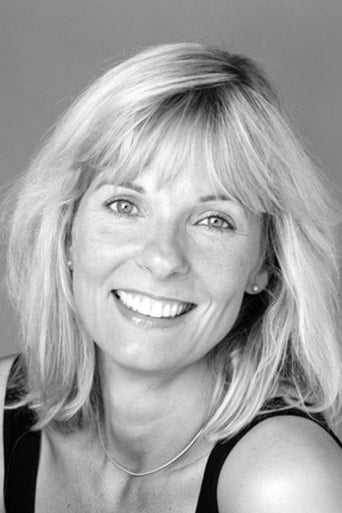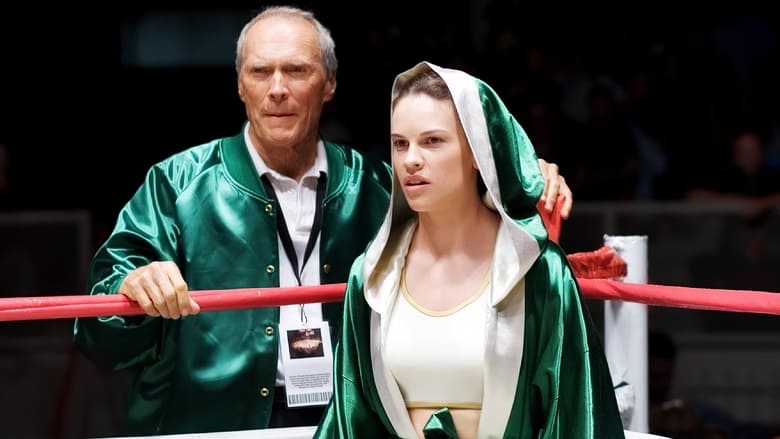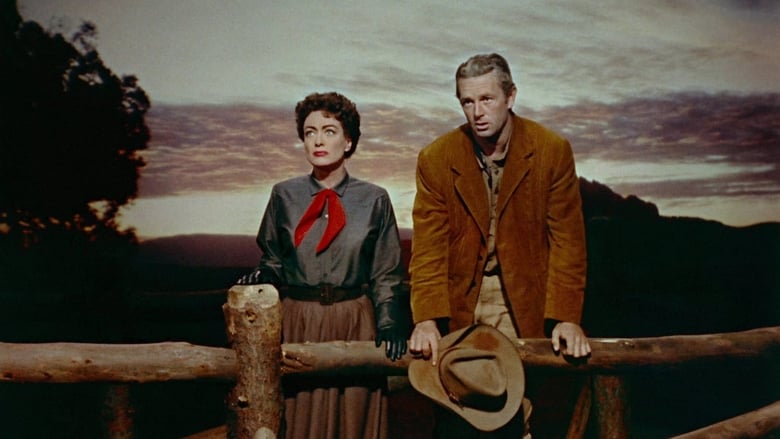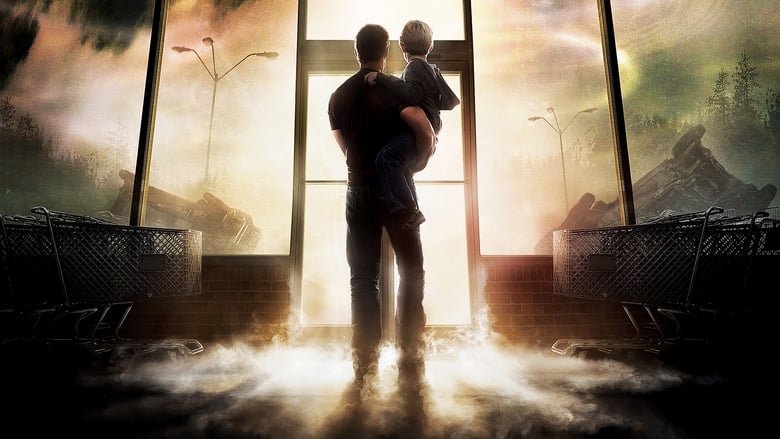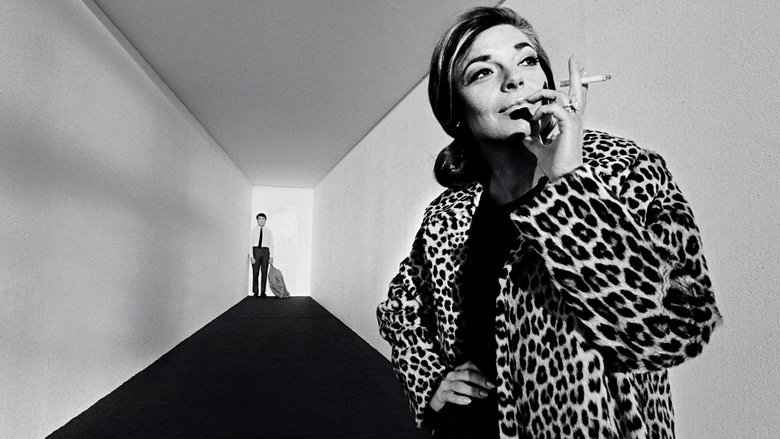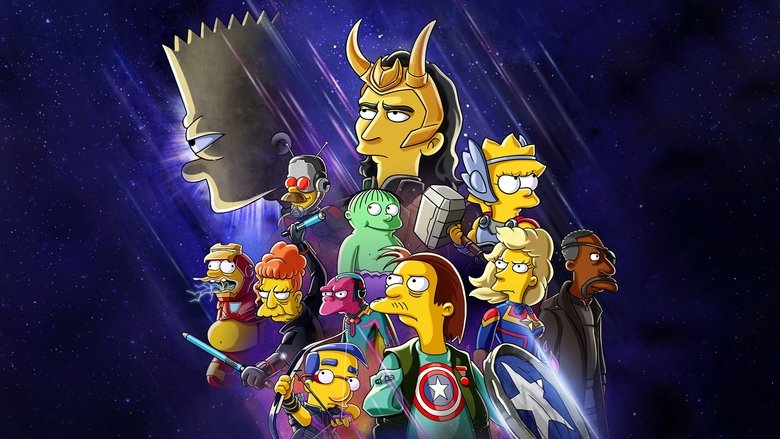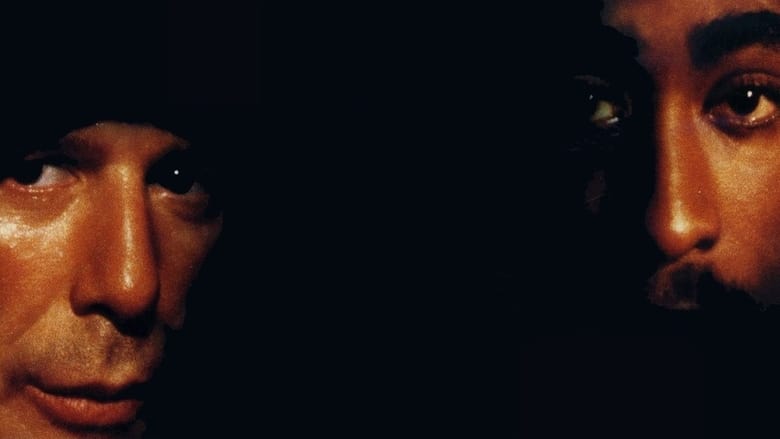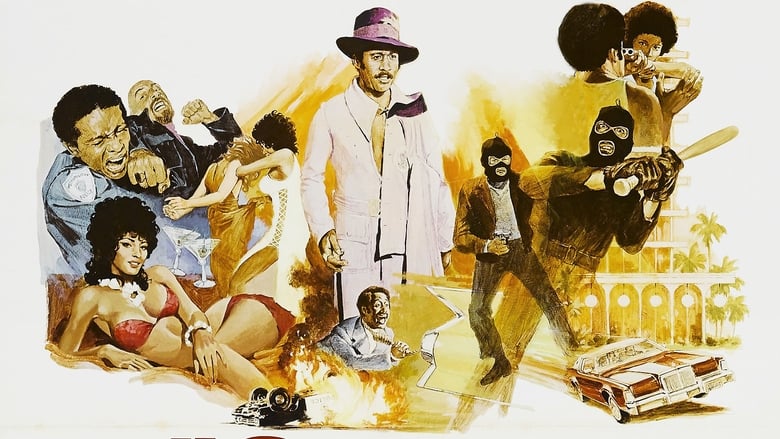In this sequel to Scenes from a Marriage (1973), we revisit the characters of Johan and Marianne, then a married couple. After their divorce, Johan and Marianne haven't seen each other for 32 years. Marianne is still working, as a divorce lawyer. Johan is quite well off and has retired to a house in the Orsa finnmark district of Sweden. On a whim, Marianne decides to visit him. Johan's son from a previous marriage, Henrik, lives nearby in a cottage with his daughter Karin, a gifted cello player. The relationship between father and son is strained.


Reviews
'Saraband' serves both as Ingmar Bergman's good-bye to film-making (and indeed, life itself, for he would be dead within four years, aged 89) and as a coda to his massively successful 'Scenes from a Marriage' Swedish TV drama series.The characters of Johan and Marianne return in this film, now withered and battle-weary, and ponder their past, trying to understand why they still feel a connection many years after their divorce. Marianne even turns to the camera, asking the viewer directly if visiting her ex-husband after so many years is a mistake.Johan and Marianne's interactions in 'Saraband' are more gentle and kind than they are in the comparatively explosive 'Scenes from a Marriage' -- no longer do they feel that they desperately need something from each other; nor do they have to argue or play games; they are open, they simply see each other as people, not as lovers, nor as opponents.Of course, this is Bergman, so nothing is as simple as all that. Johan has a deeply damaged and bitter relationship with his son, Henrik (Börje Ahlstedt), and openly admits to him in one powerful scene that he'd have no relationship with him at all were it not for his granddaughter, Henrik's now grown-up child, Karin.Henrik's relationship with his daughter is even more dark: both are grieving for their wife and mother who died several years previously and the two have a power/guilt relationship wrapped up in that grief and loneliness; and not unlike in Bergman's 'The Silence', incest is implied, but -- with the exception of one kiss that becomes sexual -- is never explicitly confirmed. Börje Ahlstedt is tremendous in the role.You almost feel that Marianne and Johan take a backseat to the 'real' story, which is that of Henrik and his daughter -- perhaps Bergman wrote the popular characters into a new story that he was more interested in, understanding the great interest in 'whatever happened to Marianne and Johan'? Because of this, Liv Ullmann and Erland Josephson don't have a great deal to work with -- certainly a lot less than they had in the lengthy TV series -- but what they do have is very strong.The most moving scene in the film is when, after a disturbing development involving Johan's son, Marianne and Johan share a bed together naked, for the first time in many years. Josepheon is shown entirely naked at the age of 80, which is extremely brave acting.'Saraband' is not at the high level of quality of some of Ingmar Bergman's late-career classics, such as the experimental and underrated 'From the Life of the Marionettes', the crushing 'Autumn Sonata' or the internationally celebrated 'Fanny and Alexander', but it is a very fine conclusion to the career of one of the all-time greats.And perhaps Bergman had finally come to terms with his existential relationship with God (or the idea of Him): in one scene, Liv Ullmann visits a church, and after a conversion with Henrik that becomes confrontational, stands up facing the altar and looks at an image of Christ, gripping her hands tightly in prayer.
We return to the couple from 'Scenes From a Marriage' 30 years later. They haven't seen each other in all that time. Marianne, still working as a lawyer, goes to visit Johan, now living off a rich inheritance in a house in the woods. The film examines the tremendous and sad complexity of Johan's life, and the further unsettling influence of Marianne's return to the scene. While there is a surface pleasure in seeing the two together again, we realize how poisonous Johan has become, allowing his 61 year old son from an earlier marriage, and his granddaughter to live in a separate house on the estate, although he hates his son. The granddaughter is in turn trapped by a desperate, near incestuous relationship with her father. In a series of simple, honest, and very powerful scenes, we watch these characters bounce off of each other in various combinations. And while all of them are plagued by deep, perhaps unforgivable flaws, I always understood that Bergman felt for them, and wished the fragments of humanity buried inside could free them. I didn't feel the film was as dark as many people for this reason. Like a directing priest, Bergman hates the sin, but not the sinner, so these people, so easy to hate, or at least dismiss on paper, keep us interested and emotionally involved, praying they will find their way out of the darkness. A strong and powerful swan song from a great film-maker, making his last film at 85.
In 2003 Swedish film legend Ingmar Bergman made his last film ever- although he's said that before, some two decades after his prior farewell to film with Fanny And Alexander. He should have never come back after that valedictory, for his effort, Saraband, a supposed sequel to his 1973 Swedish television smash Scenes From A Marriage, is a bad film- the worst I've yet to see from Bergman, and a bad film by any measure. His other 'bad' films, Cries And Whispers and The Serpent's Egg, at least had some redeeming features, as the former was overall, a good solid film, while the latter showed some potential near the end. Saraband, by contrast, is an utter void, and takes all of Bergman's worst tendencies, shoves them all together in one film, recycles the worst parts of a half dozen other of his films, and the concoction is godawful, starting with the abysmal writing. I believe Ingmar Bergman, as a screenwriter, had a strong claim to being the greatest published writer of the 20th Century. Period. But, this work is bad, really bad, not only as a screenplay and a film, but most especially as a sequel to the great Scenes From A Marriage. And it starts with the bad writing.First off, before I delve into that, however, all the major critics are wrong about this film- in their qualitative assessment as well as its ties to Scenes From A Marriage. This is in no way shape nor form a sequel to that film because the two older lead characters, Johan and Marianne (Erland Josephson and Liv Ullman), while sharing superficial qualities in common with the earlier film's qualities, are clearly not the same characters, just as one has to posit that the characters in the TV miniseries version and the shorter film version of Scenes From A Marriage are different characters because they do not go through the exact same things, and key plot elements in one are not in the other. Think of them as parallel universes with slight differences. That contemporary critics miss the obvious in their arts reviews no longer astounds me, it only saddens me. There are too many key differences, however, to be overlooked. If that is so, then the two main characters in this film are even farther removed from the Scenes From A Marriage universe. Yes, they have the same first names, are a divorced couple, and had two daughters together, split up over Johan's similarly named lover- Paula, and work in similar professions to their younger doppelgangers, but all other similarities end there . What made Scenes From A Marriage a great film was its writing, alone, and that Bergman never condescended. He let his viewers fill in the blanks they knew of from their own lives to background the scenes he showed within. In this film Bergman does not trust his audience, and condescends relentlessly. This is the sort of film that any producer worth their salt should have nixed, for it is an embarrassment to both them and to a great artist who is manifestly past his prime. Real greatness is knowing both what art to create and how, and what art to just leave in the bad idea pile. Bergman manifestly has lost that ability to discern, and this film's greatest flaw is, indeed, that it was ever made. It showcases all of his prior worst tendencies without a dram of his former redeeming greatness. It is forced, overwrought, trite, poorly written and acted, and just plain dull. Bergman leaves no melodramatic angles unused, and all to poor effect- death, suicide, insanity, incest; even Henrik's supposed life or death weighing on his abused daughter. Bergman has, like a child, finally ripped the zit off his face that was annoying him so long, and, with the pimple off, exposed a good deal of the red pulpy flesh beneath, and it ain't pretty!As for the DVD features, there are only a few trailers, a long making of featurette that, unfortunately, is not well structured nor insightful, and the DVD is not dubbed. It only is subtitled, albeit in crisp gold lettering. Saraband is an unfortunate end to one of the greatest careers in human arts, but worst of all shows the utter bankruptcy of most contemporary arts criticism, in that the critics too often excuse what an art lacks as if it has it in full, merely because of the artist's prior works or reputation. By allowing great artists' bad work a pass it sets up a precedent, so that the critic is not singled out for having shamed themselves by 'attacking' a master, that tells lesser artists that they do not have to strive either, and thus the downward cycle starts, and society ends up with reams of rotting garbage as bad art, and no one willing to pinpoint the stench. Welcome to the 21st Century world of art, and be thankful last century's Ingmar Bergman never had to deal with it, lest many of his greatest works would have never been made!
After thirty years without seeing each other, Marianne (Liv Ulmann) has a strong need to visit Johan (Erland Josephson), who is living in an isolated house that belonged to his grandparents after inheriting a fortune from a distant aunt. In the nearby cottage, Johan's son from another marriage, Henrik (Börje Ahlstedt), is living with his daughter Karin (Julia Dufvenious), after the death of his beloved wife Anna. Henrik is giving cello lessons to Karin to be admitted into a European music school and has an incestuous relationship with his daughter. Along the autumn, Marianne is involved in the troubled relationship between Johan and his son, and Henrik and his daughter.In his last work as a director, Ingmar Bergman revisits the characters of 1973 "Scenes from a Marriage" thirty years older, with Marianne sharing the dramatic and complicated relationship of John's family. The first point that impresses in this movie is the always precise and careful direction of an 83 years old Ingmar Bergman, showing an amazing vitality and longevity in his career. I do not recall the last movie I have seen of Liv Ulmann, but this now senior actress is still fantastic. This theatrical movie is a great character study, as usual in Bergman's films, with excellent and emotional dialogs, and ends with many open issues. Why Johan and Henrik hate each other so deeply? What was written in the last page of Anna's farewell letter? I believe she knew that her husband was having an incestuous relationship with Karin. The unknown actress Julia Dufvenious is extremely beautiful and talented, and her contradictory character is also impressive. My vote is eight.Title (Brazil): "Saraband"
